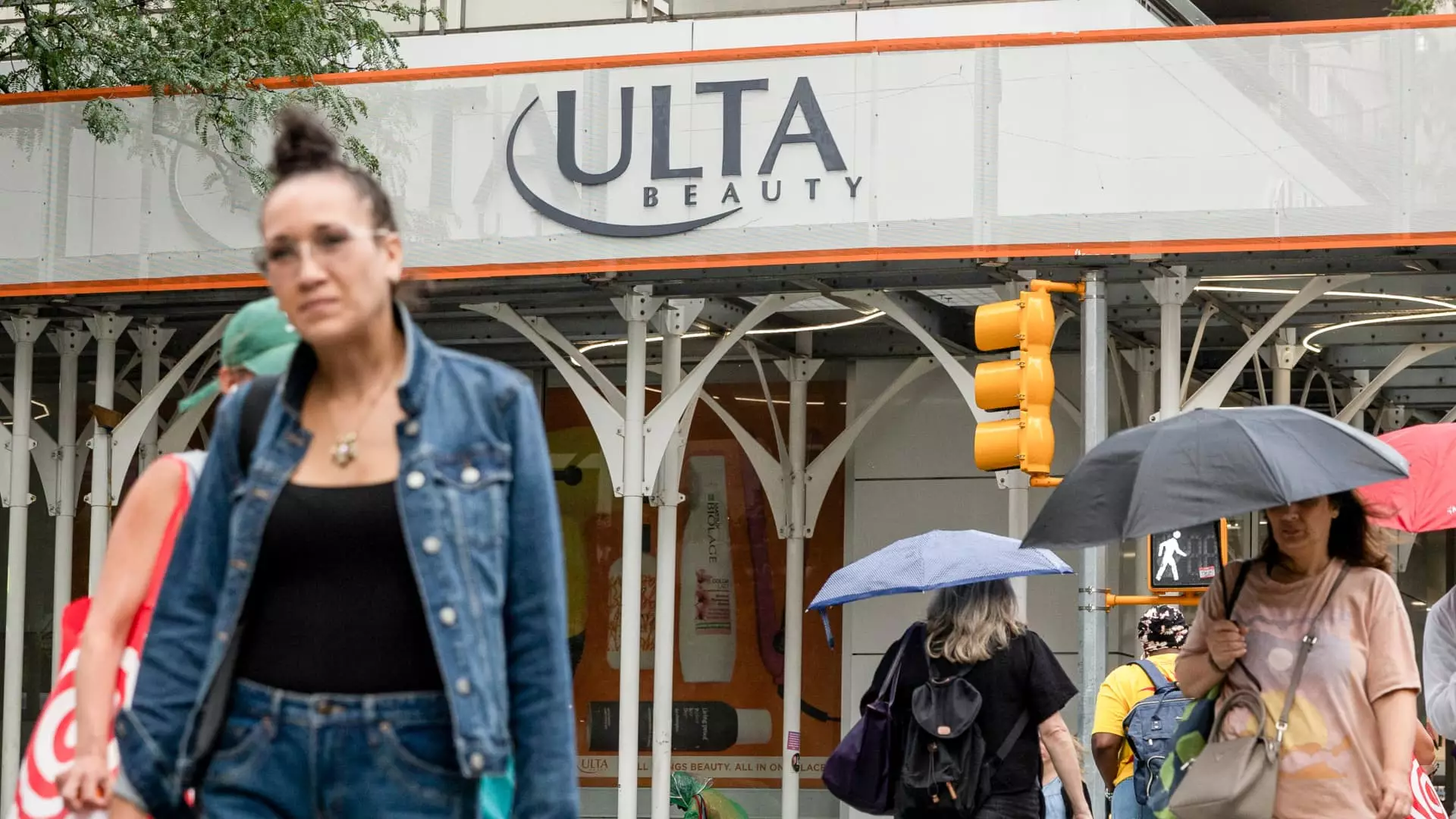Ulta Beauty recently faced a setback as their shares dropped by 7% in extended trading after falling short of second-quarter expectations. The company experienced a decline in same-store sales, marking their first earning per share miss since May 2020 and the first revenue miss since December 2020. Comparable sales for the second quarter fell by 1.2%, a far cry from the 8% increase recorded a year earlier and well below the 1.2% growth anticipated by Wall Street analysts. CEO Dave Kimbell acknowledged the challenges faced by the company and expressed disappointment in their performance during the quarter.
Kimbell highlighted four key factors during the company’s earnings call that contributed to the declining sales performance. These factors included an unanticipated operational disruption due to a change in store systems, disappointing impact from promotions, caution among consumers with their spending, and heightened competition in the beauty industry. Ulta’s market share has been under pressure, especially in the prestige beauty sector driven by makeup and hair categories. The company’s share in mass beauty remained stable, but challenges in the prestige beauty segment posed a significant threat.
Ulta Beauty revised its full-year guidance, expecting same-store sales to range from flat to a 2% decline compared to the prior guidance of 2% to 3% growth. The company also adjusted its full-year revenue forecast to $11 billion to $11.2 billion, down from the previous estimate of $11.5 billion to $11.6 billion. The earnings per share outlook was also revised to $22.60 to $23.50, a drop from the initial forecast of $25.20 to $26. The revised outlook takes into account the time required for the company’s actions to change the trajectory of sales and the pressure faced by stores impacted by competitive openings.
Ulta Beauty’s performance for the period ended August 3 fell short of expectations, with earnings per share at $5.30 compared to the anticipated $5.46 and revenue at $2.55 billion versus $2.61 billion expected. The company reported a net income of $252.6 million, or $5.30 per share, a decline from $300.1 million, or $6.02 per share, in the same quarter the previous year. Despite an increase in revenue to $2.55 billion from $2.53 billion a year earlier, Ulta’s performance did not meet analyst projections.
Ulta Beauty’s stock has been suffering, with a significant drop in 2024, leading to a 32% decline up to that point and a 26% plunge in the second quarter alone. Warren Buffet’s Berkshire Hathaway’s disclosure of a $266 million stake in the company provided some validation, driving Ulta shares higher. The company’s CEO, Dave Kimbell, had warned of cooling beauty demand earlier in the year, impacting the stock performance. To address the challenges, Ulta outlined plans to enhance sales through product assortment, brand relevance, consumer digital experience, loyalty programs, and promotional strategies.
Ulta Beauty is looking at relaunching its beauty collection and introducing personalized product recommendations to enhance the online shopping experience. The company aims to improve its rewards program value through exclusive member events and tiered offers. Additionally, Ulta plans to expand its partnership with DoorDash and leverage new gamification platforms and marketing technologies to personalize customer interactions. Despite the current challenges faced by Ulta Beauty, the company is focused on executing a comprehensive turnaround plan to navigate through the competitive landscape in the beauty industry.

